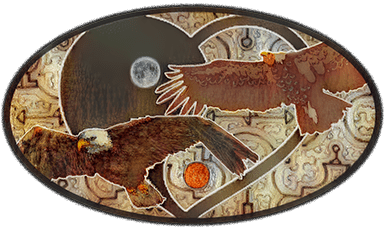Setting Boundaries as a Path to Inner Peace and Growth

Boundaries are like invisible lines that protect our energy, time, and well-being. Yet, setting them can feel unfamiliar or even uncomfortable. Many of us are taught that “being good” means saying yes, accommodating others, and avoiding conflict. But boundaries aren’t about rejection or avoidance; they’re about love and respect—for ourselves and those around us. Boundaries are sacred guidelines, keeping us aligned with our needs, honoring our values, and allowing us to show up in the world with integrity and presence.
Why Boundaries Matter for Our Well-being
Think of boundaries as the framework that holds us steady. They create a safe space where we can grow, heal, and connect meaningfully with others. Without them, our lives can become overwhelming, as we take on too much or neglect our own needs.
When we set boundaries, we’re claiming our right to be whole and healthy. Rather than isolating us, boundaries make room for genuine connection. They let others know how we want to be treated and invite them to respect us. In this way, boundaries foster deeper relationships—built on trust, respect, and clear communication.
Understanding Boundaries as Acts of Self-Compassion
Setting boundaries isn’t selfish; it’s a deeply compassionate practice. When we protect our well-being, we ensure we can be present and supportive, not just for others but for ourselves. Without healthy boundaries, resentment, burnout, or frustration can build up, affecting our peace and our relationships.
Ayahuasca and other spiritual paths remind us to recognize our inner light, our essence, and to honor it as sacred. Boundaries honor that light by allowing us to guard it and help it grow. When we choose what is nourishing and let go of what drains us, we align ourselves with what truly serves our spirit.
Practical Steps for Setting Healthy Boundaries
- Tune into Your Needs and Limits: Begin by reflecting on where you feel drained, stressed, or uncomfortable. Notice if there are patterns or certain situations that repeatedly bring discomfort. Your intuition is a powerful guide in identifying areas where you might need to set limits.
- Be Clear and Direct: Communicating boundaries clearly can feel challenging, but it’s essential. Instead of saying, “I’ll try,” consider saying, “I won’t be able to do that,” or “I need some time for myself.” Clear language helps others understand your boundaries without confusion.
- Start Small: If setting boundaries feels unfamiliar, start with smaller ones. Practice saying no to a small request or create a little more space in your daily routine for self-care. Small steps help build confidence, and over time, it becomes easier to set more significant boundaries.
- Stay Compassionate, but Firm: Boundaries are about respect, so try to communicate them with kindness. It’s possible to be loving and assertive at the same time. For example, “I value our relationship, but I also need time alone to recharge. I hope you can understand.” This approach reinforces that your boundary isn’t about rejecting others but respecting yourself.
- Expect Pushback: People may not always respond positively, especially if they’re used to you saying yes. Some might question or even resist your boundaries. This is natural, and it doesn’t mean you’re wrong for setting them. Gently stand firm, knowing that holding your ground is an act of self-love.
- Release Guilt: Guilt often arises when we start setting boundaries, but remember: saying no to one thing is saying yes to something else. When you say yes to what truly matters, like your well-being and peace of mind, you’re creating a fuller, more balanced life. Over time, releasing guilt becomes part of the journey toward self-respect.
Embracing Boundaries as a Lifelong Practice
Setting boundaries isn’t a one-time task; it’s a lifelong practice that will evolve with time and experience. Sometimes, our needs change, and so our boundaries will, too. Checking in regularly helps us stay aware of whether our boundaries still align with who we are and what we need.
As we learn to honor our boundaries, we find that life opens up with new possibilities. We have more energy, more peace, and more capacity to offer genuine support and love. By respecting our needs, we begin to see how others might benefit from doing the same for themselves, creating a ripple effect of healthier, more balanced connections.
Boundaries as a Path to Inner Peace
Ultimately, boundaries are about creating a life that supports our peace, purpose, and growth. When we respect our limits, we’re saying to ourselves: I am worthy of peace. I am worthy of rest. I am worthy of my own love and attention.
Setting boundaries is a path toward authenticity and self-discovery, revealing who we are and what we value most. May we all embrace this path, knowing that as we honor ourselves, we also honor the divine within us and create space for more joy, presence, and connection in our lives.




Responses